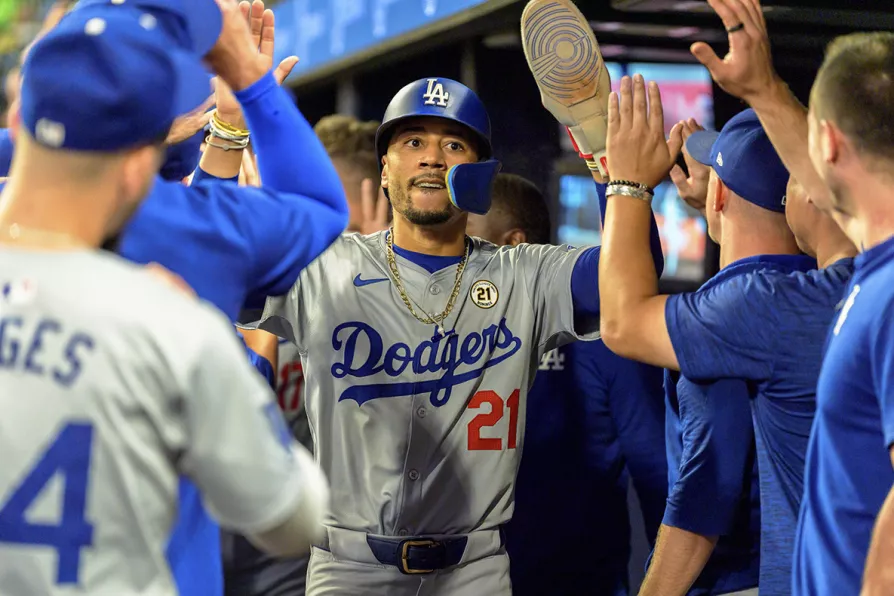
 Los Angeles Dodgers' Mookie Betts wearing (21) in commemoration of Roberto Clemente celebrates scoring in the ninth inning of a baseball game against the Atlanta Braves, September 15, 2024, in Atlanta, US
Los Angeles Dodgers' Mookie Betts wearing (21) in commemoration of Roberto Clemente celebrates scoring in the ninth inning of a baseball game against the Atlanta Braves, September 15, 2024, in Atlanta, US
ON SEPTEMBER 15, every year since 2002, Major League Baseball celebrates the life of Roberto Clemente.
Hailing from Puerto Rico and making his way into the major leagues as a right fielder with the Pittsburgh Pirates, Clemente was friends with Martin Luther King Jr and was himself a civil rights activist within the sport of baseball and outside it.
He supported local initiatives run by the Marxist–Leninist Black Panther Party in Pennsylvania such as the Free Breakfast for School Children Programme, the People’s Free Food Programme, and community health clinics.
Not all of this is mentioned on September 15, which is known in the league as Roberto Clemente Day and also marks the start of Hispanic Heritage Month in the US, but it is important that at least some of it is.
Clemente died in a plane crash on New Year’s Eve 1972 while flying to Nicaragua to personally deliver aid to the country after an earthquake near the country’s capital Managua killed up to 11,000 people.
His death said a lot about his life. It was a journey he felt he had to make. A couple of months earlier Clemente had coached the Puerto Rico team at the 1972 Baseball World Cup in Nicaragua.
His desire to personally deliver the aid to survivors and help with the relief effort came amid reports that international aid was being withheld by the US-aligned Somoza dictatorship in the Central American country that Clemente had previously spoken out against.
There were also suspicions that the provision of aid was not the primary motive of the US’s involvement in Nicaragua at this time.
In his book, A People’s History of Sports, sportswriter Dave Zirin wrote: “Thanks to Nixon’s elaborate obsession with audio technology, we know that his immediate concern after the earthquake was not the horrific loss of life in Nicaragua but rather that the country would ‘go communist’ in the ensuing chaos.
“Instead of providing relief, he sent in paratroopers to help the Nicaraguan National Guard keep order. Somoza had issued shoot-to-kill orders against anyone foraging for food, but not before shutting down all the service agencies that were feeding people.”
---
Clemente began his major league career with the Pirates in 1955, 10 years after Jackie Robinson signed with the Brooklyn Dodgers and seven years after Robinson made his first appearance in MLB and in doing so breaking the baseball colour line as the league’s first black player.
Though Robinson had blazed a trail for black players to play in the league, they still faced discrimination in baseball and in wider society as they travelled around the country with their teams.
Clemente’s character and his own experience as a player arriving in the US leagues from Puerto Rico saw him become a natural advocate for the rights of black and foreign players within the league and for minorities in the US as a whole.
The Encyclopaedia Britannica states that: “As an Afro-Latino, Clemente was also subjected to the double discrimination of being a foreigner and being black in a racially segregated society.”

To defend Puerto Rico’s right to peace is to defend Venezuela’s right to exist, argues MICHELLE ELLNER

HANK KENNEDY contends that US military attacks in the Caribbean amount to modern piracy driven by Venezuela’s oil wealth












